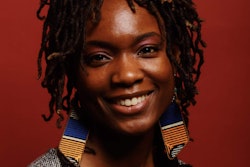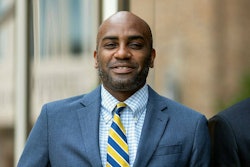CAMBRIDGE, Mass.
Dr. James L. Sherley is waging a hunger strike to protest the Massachusetts Institute of Technology’s decision to deny him tenure after eight years as an associate professor of biological engineering. But Sherley, a rare Black scientist who researches human stem cells, says his ultimate cause is bigger than his own academic status.
“This cause is not about tenuring Sherley, it’s about ending racism at MIT,” he told Diverse on Wednesday, a week and a half after going on a hunger strike. Every weekday morning, he and other protestors huddle outside the office of provost L. Rafael Reif.
Sherley, 49, maintains the decision to deny him tenure, made two years ago and upheld in three administrative reviews since then, was tinged by racial considerations and procedural irregularities. His teaching contract ends in June.
MIT administrators have denied Sherley’s charges and noted that fewer than half of the college’s junior faculty members are offered tenure. Chancellor Phillip Clay, who is Black, has said that after consultations with outside experts in Sherley’s field “he didn’t come up to the standard we expect.” As chancellor, Clay is not MIT’s chief executive but oversees undergraduate and graduate education and student life and services.
Last year, while his appeal was under review, Sherley was one of 13 scientists nationwide to receive a Pioneer Award from the National Institutes of Health. The institute began presenting the annual awards in 2004 to “innovative scientists with ideas that have the potential for high impact,” according to its Web site.
The federal agency says Sherley’s $2.5 million research grant will “enable a new era of cellular medicine by developing routine methods for the production of several types of human adult stem cells with clinical potential.” MIT had another award winner last year, Dr. Arup K. Chakraborty, who holds an endowed professorship of chemical engineering, chemistry and biological engineering.
At the time of the initial decision against tenure in January 2005, Sherley had applied for 12 patents, a number that has since grown to 18, he says. All but one was filed while at MIT.
Sherley acknowledge that some chatter on campus attributes the adverse tenure decision to his outspoken opposition to using embryonic stem cells in research, not to his race. “My position is that embryos at their earliest stage are living human beings, and my view is we shouldn’t use them for research,” he says.
But Sherley says a racial disparity in his treatment was evident from the start at MIT, when he was allocated less than a fifth of the lab space he had been promised. Despite that continuing handicap, Sherley insists he and his lab assistants performed “superior work,” mostly in a lab shared with a senior faculty member.
Faculty members who are denied tenure rarely prevail in fights to get the decision overturned, but Sherley notes optimistically, “sometimes they do.”
Over the past quarter century, the hiring and promotion of Black faculty at MIT has proceeded at a glacial pace. Currently, 27 of 740 tenured faculty members, or 3.6 percent, are Black or Hispanic, according to the college. In the early 1980s, 1.8 percent of MIT’s full-time faculty was Black, according to a Boston Globe article published in 1983.
–Kenneth J. Cooper
There is currently 1 comment on this story.
Click here to post a comment.
© Copyright 2005 by DiverseEducation.com















